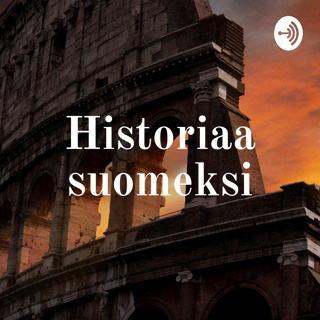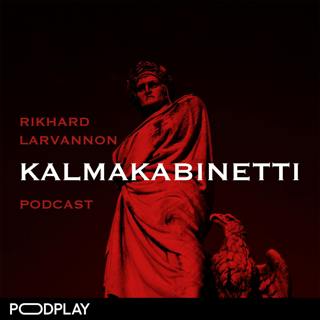
Cultural Imperialism
Melvyn Bragg and guests discuss how a dominant power can exert a cultural influence on its empire. An empire rests on many things: powerful armies, good administration and strong leadership, but perhaps its greatest weapon lies in the domain of culture. Culture governs every aspect of our lives: our dress sense and manners, our art and architecture, our education, law and philosophy. To govern culture, it seems, is to govern the world. But what is cultural imperialism? Can it be distinguished from cultural influence? Does it really change the way we think and should we try to prevent it even if it does?With Linda Colley, School Professor of History, London School of Economics; Phillip Dodd, Director, Institute of Contemporary Arts; Mary Beard, Reader in Classics, Cambridge University.
27 Kesä 200227min

Wagner
Melvyn Bragg and guests discuss Richard Wagner who, perhaps more than any other composer, would seem to capture the greatest triumphs and most terrifying excesses of the German spirit. He lived as modern Germany was being born and his republicanism led to exile and nearly execution. He was a mentor of Nietzsche and a disciple of Schopenhauer and changed the face of opera perhaps more than any other single person. Wagner conducted several orchestras and numerous affairs, suffered poverty and rejection but was finally showered with wealth by King Ludwig II. When the Nazis played his music in the death camps was it a fitting tribute to a gross anti-Semite or a travesty for a man who believed in redemption through love and social equality? We ask to what extent can Wagner be typified as demonstrating the German spirit and what were his views on the function of art? With John Deathridge, King Edward the Seventh Professor of Music, Kings College London; Lucy Beckett, Author of Richard Wagner: Parsifal; Michael Tanner, Philosopher and author of Wagner and Nietzsche.
20 Kesä 200228min

The American West
Melvyn Bragg and guests discuss the myths and harsh reality of the 19th century American pioneers. In 1845 the editor of The New York Morning News wrote that it was the "manifest destiny" of the United States "to overspread and to posses the whole of the continent which providence has given us for the development of the great experiment of liberty and federated self-government entrusted to us." With such phrases ringing in their ears the pioneering wagon trains rolled west into the uncharted wilderness of the American continent. Thus began the wagon trails that cut a path beyond the frontier to California and Oregon, a path soon to be followed by gold prospectors, entrepreneurs, cowboys and finally the US army itself. But what propelled them all to go? Was it an "experiment of liberty", or the promise of a better life? Does the story of the frontier help us to understand the American psyche and do our ideas about the American West owe more to the mythology of John Wayne movies than to the history of the real trailblazers? With Frank McLynn, Visiting Professor in the Department of Literature, University of Strathclyde; Jenni Calder, Author of There Must Be a Lone Ranger: The myth and reality of the American Wild West; Christopher Frayling, Rector of the Royal College of Art.
13 Kesä 200227min

The Soul
Melvyn Bragg and guests discuss the Soul. In his poem ‘Sailing to Byzantium’ WB Yeats wrote:An aged man is but a paltry thing, A tattered coat upon a stick, unlessSoul clap its hands and sing, and louder singFor every tatter in its mortal dress. For Plato it was the immortal seat of reason, for Aristotle it could be found in plants and animals and was the essence of every being - but it died when the body died. For some it is the fount of creativity, for others the spark of God in man. What is the soul made of and where does it live? Is it the key to our individuality as humans? And when we die will our souls find paradise or purgatory, rebirth, resurrection or simply annihilation? With Richard Sorabji, Gresham Professor of Rhetoric at Gresham College; Ruth Padel, poet and author; Martin Palmer, Theologian and Director of the International Consultancy on Religion, Education and Culture.
6 Kesä 200228min

The Grand Tour
Melvyn Bragg and guests discuss the origins and cultural impact of 18th century tourism. Samuel Johnson observed in 1776 that "A man who has not been in Italy, is always conscious of an inferiority, from his not having seen what it is expected a man should see." Johnson was referring, perhaps ironically, to the vogue for The Grand Tour, which reached its peak in the 18th century. The idea was for wealthy young travellers to finish their education with an extensive trip to Europe to experience its natural beauties, its cultural treasures and, if they were lucky, its sexual permissiveness. The standard route took in Paris and The Alps and some tourists, including Byron, made it as far as Greece. But the destination, par excellence, was Italy, with its Renaissance glories and classical splendours. What drove this desire for travel? Was it genuine cultural curiosity or simply the fashion? What impact did the Grand Tour have on British attitudes to art and culture? And were diplomatic relations between Britain and Europe helped or hindered by these travels? With Chloe Chard, Literary historian; Jeremy Black, Professor of History, University of Exeter, Edward Chaney, Professor of Fine and Decorative Arts, Southampton Institute.
30 Touko 200228min

Drugs
Melvyn Bragg and guests discuss the history of drugs. Throughout history people have taken them to alter their perceptions and change their moods. The attractions lie in the promise of instant pleasure and the possibility of heightened perceptions. Nietzsche said that no art could exist without intoxication and believed that a dream-like state was an essential precondition to superior vision and understanding. But artists and writers from De Quincey to Coleridge to Huxley have found drugs to be both a creative and a destructive force in their lives and work. Coleridge said in his poem about opium: Fantastic Passions! Maddening Brawl! And shame and terror over all! The world of drugs is a topsy-turvy world of ambivalence and paradox: a world of clarity and confusion; stimulation and stupefaction; medicine and poison; vitality and death.Can drugs really stimulate creativity? What is the impact of drugs on the body? And what role have narcotics and stimulants played in the history of medicine? With Richard Davenport-Hines, historian and author of The Pursuit of Oblivion: A Global History of Narcotics; Sadie Plant, author of Writing on Drugs; Mike Jay, historian and author of Emperors of Dreams, Drugs in the Nineteenth Century.
23 Touko 200228min

Chaos Theory
Melvyn Bragg examines whether world is a fundamentally chaotic or orderly place. When Newton published his Principia Mathematica in 1687 his work was founded on one simple message: Nature has laws and we can find them. His explanation of the movements of the planets, and of gravity, was rooted in the principle that the universe functions like a machine and its patterns are predictable. Newton’s equations not only explained why night follows day but, importantly, predicted that night would continue to follow day for evermore. Three hundred years later Newton’s principles were thrown into question by a dread word that represented the antithesis of his vision of order: that word was Chaos. According to Chaos Theory, the world is far more complicated than was previously thought. Instead of the future of the universe being irredeemably fixed, we are, in fact, subject to the whims of random unpredictability. Tiny actions can change the world by setting off an infinite chain of reactions: famously, if a butterfly flaps its wings in Brazil - it could cause a tornado in Berlin. So what’s the answer? Is the universe chaotic or orderly? If it’s all so complicated, why does night still follow day? And what is going on in that most complex machine of all - the brain - to filter and construct our perception of the world? With Susan Greenfield, Senior Research Fellow, Lincoln College, Oxford University; David Papineau, Professor of the Philosophy of Science, Kings College, London; Neil Johnson,University Lecturer in Physics at Oxford University.
16 Touko 200242min

The Examined Life
Melvyn Bragg and guests discuss self-examination. Socrates, the Greek philosopher of the 4th century BC, famously declared that "The unexamined life is not worth living." His drive towards rigorous self-enquiry and his uncompromising questioning of assumptions laid firm foundations for the history of Western Philosophy. But these qualities did not make him popular in ancient Athens: Socrates was deemed to be a dangerous subversive for his crime, as he described it, of "asking questions and searching into myself and other men". In 399 BC Socrates was sentenced to death on the charge of being "an evil-doer and a curious person". Two thousand years later, the novelist George Eliot was moved to reply to Socrates that "The unexamined life may not be worth living, but the life too closely examined may not be lived at all". For Eliot too much self-scrutiny could lead to paralysis rather than clarity. What did Socrates mean by his injunction? How have our preoccupations about how to live altered since the birth of ancient Greek philosophy? And where does philosophy rank in our quest for self-knowledge alongside science, the arts and religion? With Dr Anthony Grayling, Reader in Philosophy, Birkbeck, University of London; Janet Radcliffe Richards, Philosopher of Science and Reader in Bioethics, University College, London; Julian Baggini, Editor, The Philosopher’s Magazine and co-editor of New British Philosophy: The Interviews.
9 Touko 200242min





















